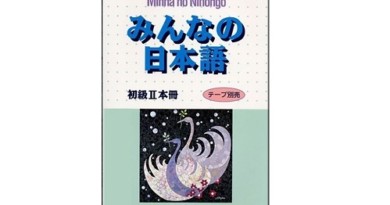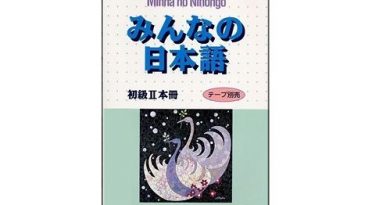Contents
Learn minna no nihongo lesson 29
3. Grammar
Transitive and Intransitive verbs
| Transitive verb | Intransitive verb | |
| Meaning | The verbs that people directly impact on. Transitive verbs focus on the action or behavior of a subject | The verbs describing the states that people do not impact on. Intransitive verbs focus on the action or behavior |
| The particle | Often goes with を | Often goes with が |
| Subject | People | Events, things |
| Notes | Always in form:ている |
Example:
| ドアを あけます Doa wo agemasu. Open the door | ドアが あいています Doa ga aitemasu The door is open |
| 紙を 破ります Kami wo yaburimasu Tear the paper | 紙が 破れています Kami ga yaburete imasu. The paper is torn |
N が Vています。
Usage : describe the state of something appear in front of us
Use with intransitive verbs
The particle used here is が. When we want to emphasize the subject of the action, we use は.
Example:
窓が割れています
Mado ga warete imasu
The window is broken.
電気はついています。
Denki ga tsuite imasu.
The light is on.
Vてしまう (Vてしまいました/しまいます。)
Usage : Emphasize that something has done, finished. Express the regret, confusion of an action that happened
Often go with もう, ぜんぶ
Example :
このレポート は5時までにかいてしまいます.
Kono repo-to ha 5 ji madeni kaite shimaimasu.
This report will be finished writing by 5 o’clock.
英語の 宿題はも う やってしまいました.
Eigo no shukudai ha mou yatte shimaimashita.
I have finished my English homework.
パスポートを なくしてしまいました.
Pasupo-to wo nakushite shimaimashita.
I lost my passport.
コップが 割れて しまいました.
Cuppu ga warete shimaimashita.
The cup was broken.
ありました
Meaning : explored, found
Usage :Use to express that the speaker discovered something
Example :
鍵が ありましたよ.
Kagi ga arimashita yo.
I found the key!
4. Kaiwa
忘れ物を して しまったんです。
wasuremono wo shi te shimatta n desu.
イー すみません。今の 電車に 忘れ物を して しまったんですが・・・・・。
sumimasen. ima no densha ni wasuremono o shi te shimattan desu ga……
駅員 何を 忘れたんですか。
Enkiin: nani wo wasure tan desu ka.
イー 青い かばんです。このくらいの・・・・・。
I-: aoi kaban desu. kono kurai no……
外側に 大きい ポケットが 付いて います。
sotogawa ni ookii poketto ga tsui te i masu.
駅員 どの 辺ですか。
Enkiin: dono atari desu ka.
イー よく覚えて いません。でも、網棚の 上に 置きました。
I-: yoku oboe te imasen. demo, amidana no ue ni oki mashi ta.
駅員 中に 何が 入って いますか。
Enkiin: naka ni nani ga haitte i masu ka.
イー えーと、確か 本と 傘が 入って います。
I-: e-to, tashika hon to kasa ga haitte i masu.
駅員 じゃ、すぐ 連絡しますから、ちょっと 待って いて ください。
Enkiin: ja, sugu renraku shi masu kara, chotto matte i te kudasai.
駅員 ありましたよ。
Enkiin: ari mashi ta yo.
イー ああ、よかった。
I-: aa, yokatta.
駅員 今 四ツ谷駅に ありますが、どう しますか。
Enkiin: ima yotsuya eki ni ari masu ga, dou shi masu ka.
イー すぐ 取りに 行きます。
I-: sugu tori ni iki masu.
駅員 じゃ、四ツ谷駅の 事務所へ 行って ください。
Enkiin: ja, yotsuya eki no jimusho he okonatte kudasai.
イー はい。どうも ありがとう ございました。
I-: hai. doumo arigatou gozai mashi ta.
Translation:
I have forgotten something.
Lee: Excuse me. I left something on the last train….
Station attendant: What did you forget?
Lee: It is a blue bag. It has this size…… There is a large pocket outside.
Station attendant: Where did you put it?
Lee: I do not remember well. But I put it on the luggage rack.
Station attendant: What do you put in it?
Lee: Well, there is a book and an umbrella for sure.
Station attendant: Well, I will contact immediately, so please wait a moment.
…………………………………………………………………………..
Station attendant: We found it.
Lee: Oh, that’s good,
Station attendant: It is in Yotsuya Station now, what will you do?
Lee: I will go to get it right away.
Station attendant: Well, please go to the office of Yotsuya Station.
Lee: Yes. Thank you very much.
Please see the renshuu section on the next page.

